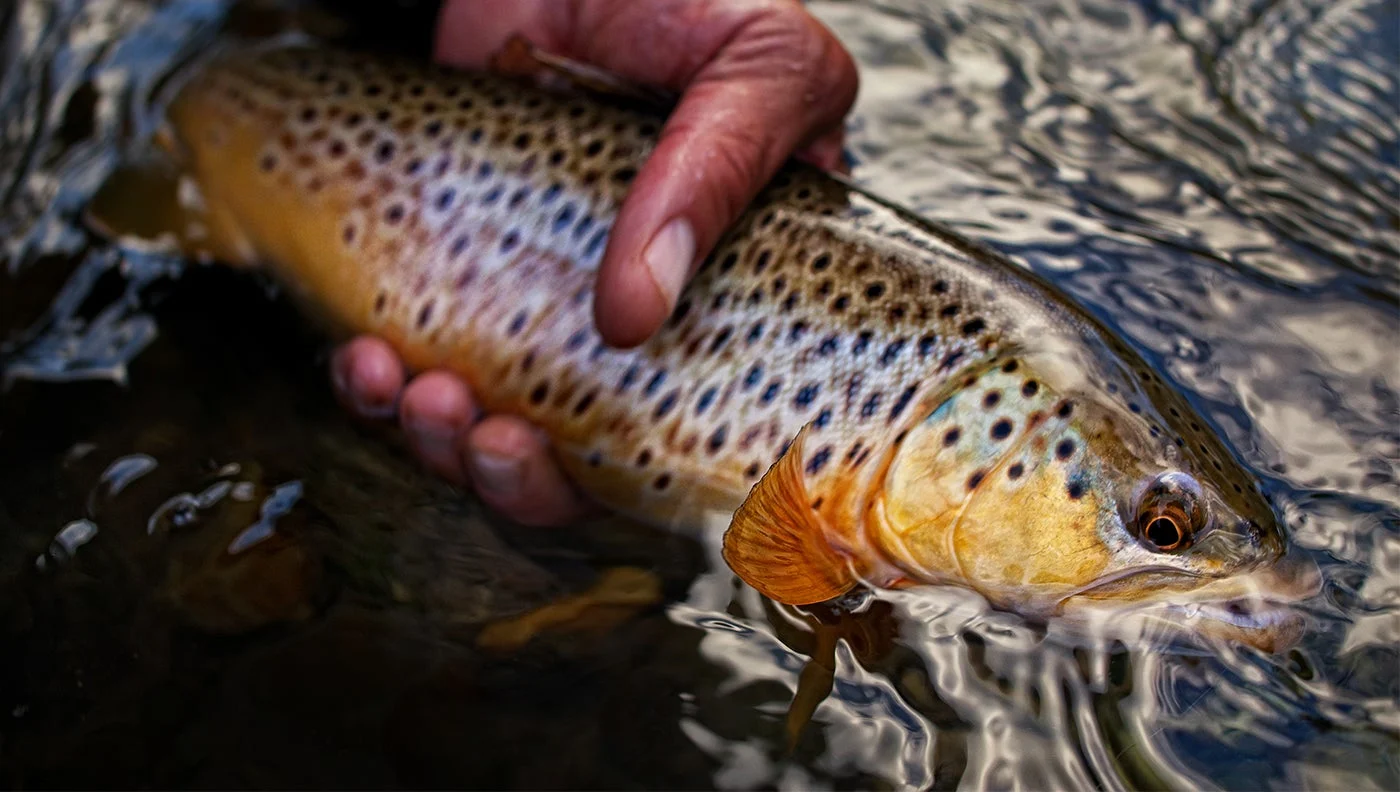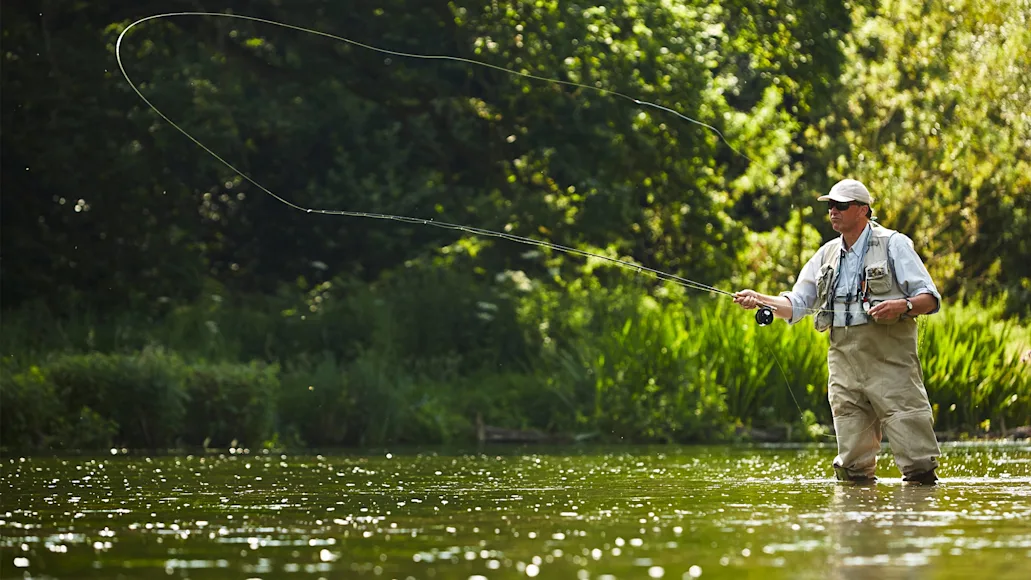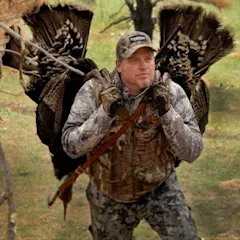In my hometown of North Bangor, New York, when the folks meet up on their front lawns or at the post office, they always chat a while. Usually, they talk about each other’s vegetable gardens, or the farmers ask when it’s going to rain or stop raining, but they all tend part with the same words: “Okay, take it slow.”
The other day I was sitting on the grassy bank of Bakers Creek waiting for a hatch of sulfurs to pop up. Across the Meadow, Mr. Bombard was putting his heifers out to pasture, and I was gazing with a wide-angle stare toward the head of the pool where a rusty barbed-wire fence sags from one bank to the other. I was watching the swallows dart around, catching in the corner of my eye those little sunlit beads of water that ricochet off the rocks like sparks, and listening to the grouse drumming in the woods upstream.

Learn how to get the all-new Field & Stream journal!
I’d arrived a little early for the hatch, but that was okay. I waited. And in the meantime, I watched Mr. Bombard’s heifers slowly munched their way toward the stream bank, and I listened to the grouse, who sounded like tractors that wouldn’t start. After a while I saw a tiny flutter, then a little white flash against the sun and another period I waited. Then I heard blurp, then blurp, blurp. I stepped into the stream, tied down a size 16 thorax-style sulphur, and waited.
Before long the trout stopped slashing and finning and began sipping steadily on the surface, keying on the duns. So I started false-casting. Then the first of Mr. Bombard’s heifers plunked down into the pool, followed by another, with the rest of the herd crowding the bank behind. The fish turned off, but it wasn’t a big deal. The heifers were just crossing over to the other pasture, and I wasn’t going to hurry them along. I could have moved upstream, but I like that pool, so I went back to the bank and waited.
The sun was getting pretty low in the sky, it’s rays starting to stretch horizontally across Mr. Bombard’s farmland. Little arms of light were pushing through the trees where the woods began at the head of the pool, and the mayflies rising off the water were flashing white with each ray they passed through. They flashed, then disappeared, then flashed again. Mr. Bombard had just cut his hay, and the dust was hovering in the layers over the fields and glittering in the sun. I leaned back against the bank and watched…and listen to the heifers splashing in the pool, and the grouse that sounded like tractors…and glimpsed the sparks of water ricocheting off the rocks…and waited.

A pretty small-stream brown trout. Ken Redding / Getty Images
When the last of the heifers had crossed to the other pasture, the world was cast in that yellow haze that comes just before dusk. The fish turned back on. So I laid out a cast and leaned into a brown and then another and fished until dark.
Walking back to my car, I passed by Mr. Bombard’s farmhouse. He was sitting on the front porch with his mother, soaking up a nice evening, the two of them, talking softly. Mr. Bombard called out as I walked by.
“Hey there, David.”
“Hi, Mr. bombard,” I said. “High, Mrs. Bombard.”
“How are your folks?”
“They’re doing real good. I’ll tell them you asked.”
“David, tell your grandfather I said hello.”
“I’ll do that, Mrs. Bombard”
“Okay, you take it slow.”
“Oh, I will.”


